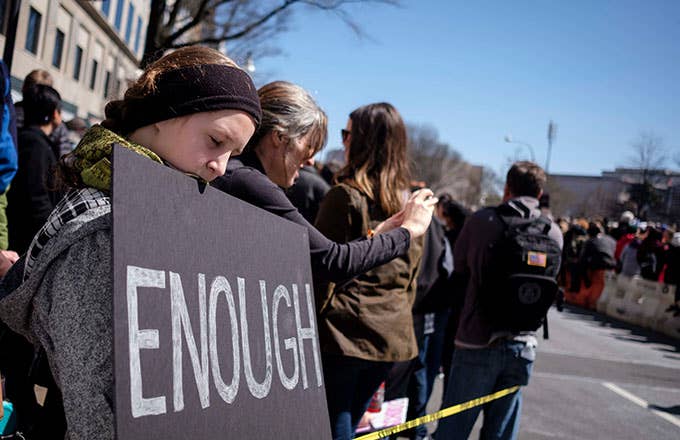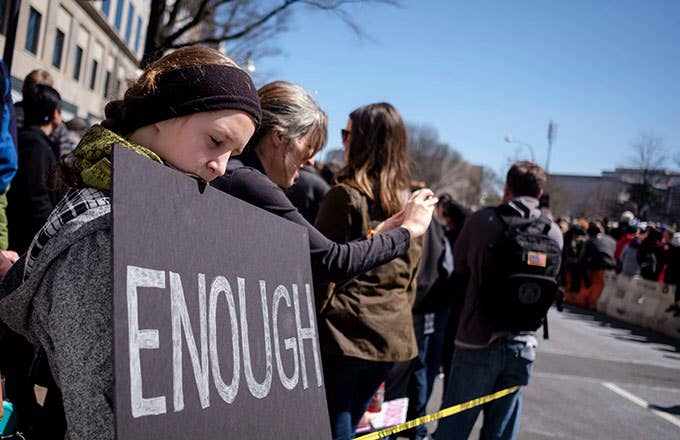
In the weeks since a school shooting in Parkland, Florida took 17 lives, the survivors have been more vocal about the tragedy, spoken out about gun control, and even organized a day of action last Saturday with March For Our Lives.
In a new op-ed for the New York Times, Marjory Stoneman Douglas senior Isabelle Robinson penned a chilling essay about her own experiences with shooter Nikolas Cruz, dispelling notions that students can prevent such tragedies by simply befriending to often socially outcasted students who commit these horrific acts.
"The idea that we are to blame, even implicitly, for the murders of our friends and teachers is a slap in the face to all Stoneman Douglas victims and survivors," she said. After describing an earlier assault from middle school by Cruz, Robinson says she attempted to befriend him when she was assigned to be Cruz's peer tutor. Despite her discomfort during the unsupervised sessions, the senior felt bound by expectations of her. "I strive to win the praise of the adults in my life and long to be seen as mature beyond my years. I would have done almost anything to win the approval of my teachers," she explained.
In response to the walk-outs that happened across the country last week, the #WalkUpNotOut hashtag hit its stride, calling for students to "walk up" to "troubled" and otherwise awkward students instead of walking out. More often than not, the assailants of these crimes are described "loners" who commit violent acts partially as a result of being ostracized.
Robinson referred to this thinking as "deeply dangerous" and ultimately put the onus on schools to get the appropriate mental health assistance for students identified as having violent tendencies, and the current government to push for gun control.
"No amount of kindness or compassion alone would have changed the person that Nikolas Cruz is and was," she said, "or the horrendous actions he perpetrated. That is a weak excuse for the failures of our school system, our government, and our gun laws." While it has been speculated that Cruz suffers from mental health issues, requests for an evaluation of his mental state while he was still a student at Stoneman Douglas in 2016 were not acted upon. For Robinson, that responsibility should still not fall on fellow students.
"The implication that Mr. Cruz’s mental health problems could have been solved if only he had been loved more by his fellow students is both a gross misunderstanding of how these diseases work and a dangerous suggestion that puts children on the front line."
Read the full essay here.

